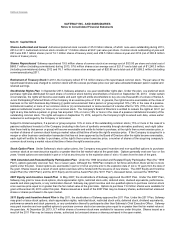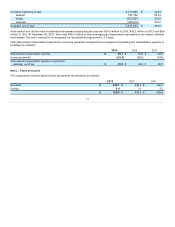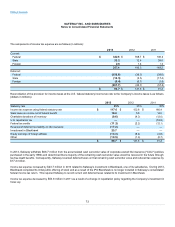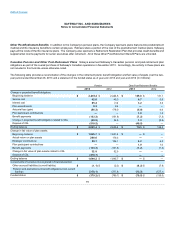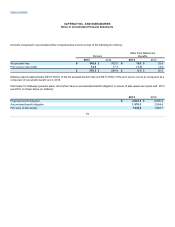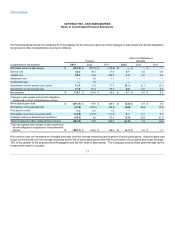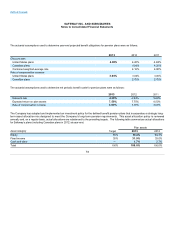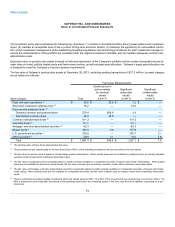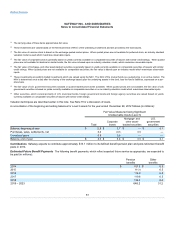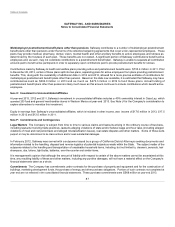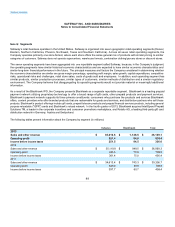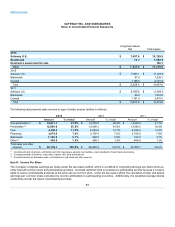Safeway 2013 Annual Report Download - page 81
Download and view the complete annual report
Please find page 81 of the 2013 Safeway annual report below. You can navigate through the pages in the report by either clicking on the pages listed below, or by using the keyword search tool below to find specific information within the annual report.
Table of Contents
The investment policy also emphasizes the following key objectives: (1) maintain a diversified portfolio among asset classes and investment
styles; (2) maintain an acceptable level of risk in pursuit of long-term economic benefit; (3) maximize the opportunity for value-added returns
from active investment management while establishing investment guidelines and monitoring procedures for each investment manager to
ensure the characteristics of the portfolio are consistent with the original investment mandate; and (4) maintain adequate controls over
administrative costs.
Expected return on pension plan assets is based on historical experience of the Company’s portfolio and the review of projected returns by
asset class on broad, publicly traded equity and fixed-income indices, as well as target asset allocation. Safeway’s target asset allocation mix
is designed to meet the Company’s long-term pension requirements.
The fair value of Safeway’s pension plan assets at December 28, 2013, excluding pending transactions of $37.2 million, by asset category
are as follows (in millions):
Fair Value Measurements
Asset category: Total
Quoted prices in
active markets
for identical
assets
(Level 1)
Significant
observable
inputs
(Level 2)
Significant
unobservable
inputs
(Level 3)
Cash and cash equivalents (1) $30.2 $29.0 $1.2 $ —
Short-term investment collective trust (2) 18.2 —18.2 —
Common and preferred stock: (3)
Domestic common and preferred stock 270.4 269.9 0.5 —
International common stock 38.5 38.5 — —
Common collective trust funds (2) 611.2 —611.2 —
Corporate bonds (4) 101.1 —101.1 —
Mortgage- and other asset-backed securities (5) 62.3 —62.3 —
Mutual funds (6) 183.8 5.9 177.9 —
U.S. government securities (7) 335.8 —335.7 0.1
Other securities (8) 29.9 3.1 19.0 7.8
Total $1,681.4 $346.4 $1,327.1 $7.9
(1) The carrying value of these items approximates fair value.
(2) These investments are valued based on the Net Asset Value (“NAV”) of the underlying investments and are provided by the fund issuers.
(3) The fair value of common stock is based on the exchange quoted market prices. When quoted prices are not available for preferred stock, an industry standard
valuation model is used which maximizes observable inputs.
(4) The fair value of corporate bonds is generally based on yields currently available on comparable securities of issuers with similar credit ratings. When quoted
prices are not available for identical or similar bonds, the fair value is based upon an industry valuation model, which maximizes observable inputs.
(5) The fair value of mortgage- and other asset-backed securities is generally based on yields currently available on comparable securities of issuers with similar
credit ratings. When quoted prices are not available for comparable securities, the fair value is based upon an industry model which maximizes observable
inputs.
(6) These investments are publicly traded investments which are valued using the NAV. The NAV of the mutual funds is a quoted price in an active market. The
NAV is determined once a day after the closing of the exchange based upon the underlying assets in the fund, less the fund’s liabilities, expressed on a per-
share basis.
79


